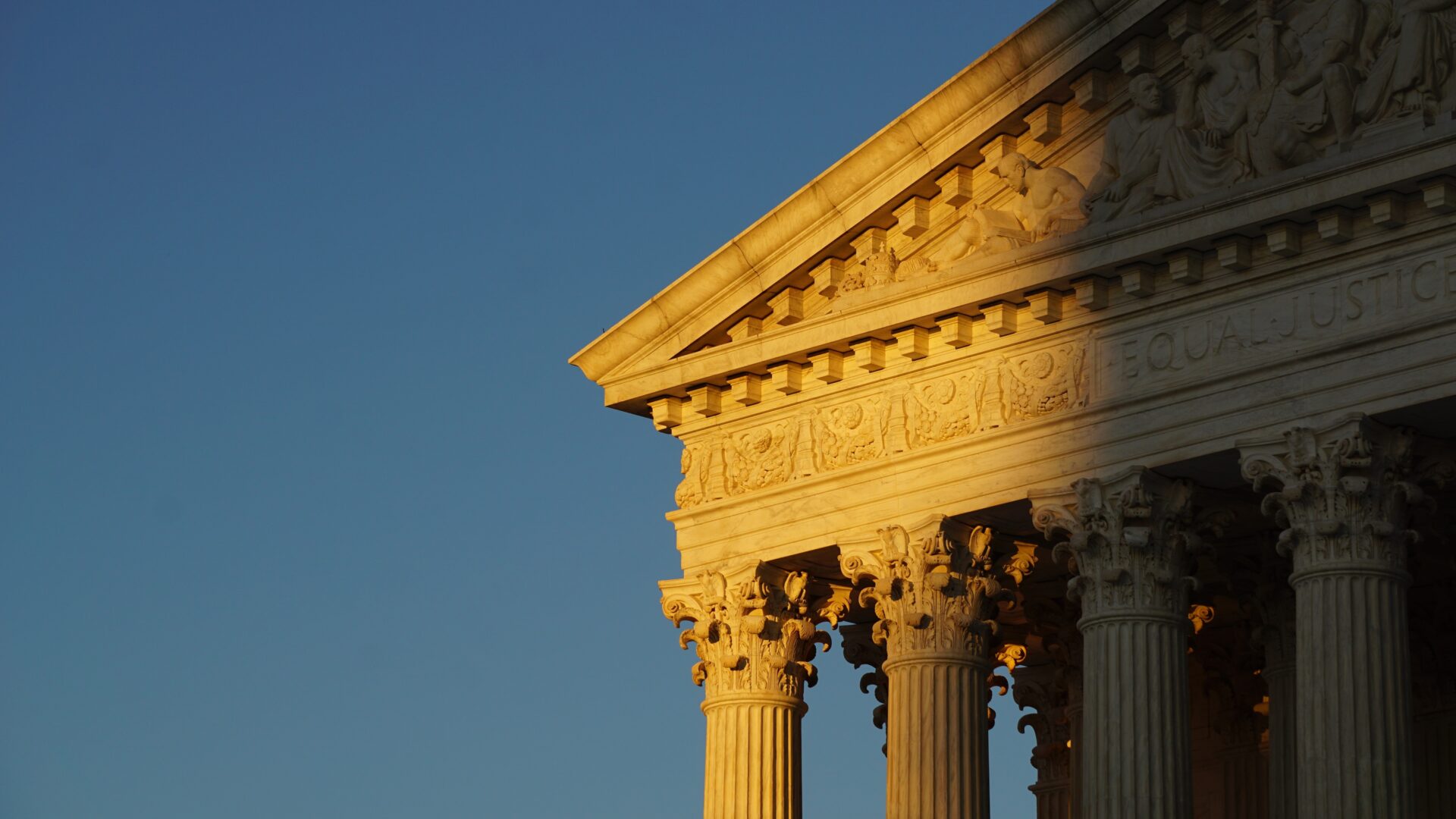
The Supreme Court.
Photo by Ian Hutchinson on Unsplash
What have we learned from post-Reconstruction?
Between the years of 1865 and 1876, African American political power reached levels that were unimaginable only five or ten years earlier. African Americans were elected to political offices at the local, county, state, and federal levels. They were members of town councils, state legislatures, and members of both the United States House of Representatives and the United States Senate. As a result of the 13th, 14th, and 15th amendments to the U.S. Constitution, hands that once picked cotton were now picking members of Congress.
Then the ugly underbelly of this country erupted in the form of efforts to reestablish the principle of white supremacy. Desperate efforts were undertaken to strip away from African Americans the political power and access to voting rights they had been enjoying. The goal was to place African Americans at the whims of their former slave masters. Post-Reconstruction began in 1877 with the election of Rutherford B. Hayes because of a compromise that resulted in the removal of the Union Army soldiers that had been protecting the rights and the very lives of the formerly enslaved people.
Within a few years, all African American officeholders in the states of the former Confederacy were removed. At the same time, voting rights for African Americans were suppressed. Between poll taxes, the grandfather clause, literacy tests, and threats and actual brutality by the Ku Klux Klan against any African American that even dared to register to vote, their political power was wiped away under the banner of white supremacy.
Those African Americans that dared to resist this denial of constitutional rights found their land confiscated, their churches burned, their jobs suddenly taken away, and often their bodies hung from trees, lampposts, and bridges. White people were determined to deny any voice to African Americans within the nation’s electoral systems. The Confederacy may have lost the Civil War, but they were intent on reestablishing a social structure rooted in white supremacy through terrorist attacks on anyone that stood in their way.
All this history came to mind this spring when white, Republican members of the Tennessee state legislature voted to remove two African American members of that body simply because they dared to challenge gun laws in that state that have made it easier for guns to be sold, carried, and used in Tennessee. The issue about gun laws arose after the horrific school shooting in Nashville that killed three nine-year-old students and three staff members. Students, parents, and concerned citizens held a demonstration inside the state Capitol to demand a change in gun laws. Three Democratic legislators—Justin Jones, Justin Pearson, and Gloria Johnson—joined that demonstration. When the voices of citizens were being ignored, those three legislators went inside the chamber of the Tennessee House of Representatives to challenge their Republican colleagues to act in response to the school shooting, and in response to the protest going on just outside the doors of their legislative chamber.
George Santayana famously observed, “Those who cannot remember the past are condemned to repeat it.” What have we learned from post-Reconstruction?
Rather than hear what those three legislators had to say, their desk microphones were turned off at the direction of the Speaker of the House. Rather than be silenced, the three legislators went to front of the chamber, grabbed a bullhorn, and continued to address their colleagues on the issue of gun laws. Their actions were deemed to be “a breach of decorum,” and they were confronted with the drastic action of being expelled from positions to which they had been elected by their constituents in Nashville, Memphis, and Knoxville. In what was widely criticized as an act of racial animus, the two African Americans, Jones and Pearson, were expelled from the legislature, but Gloria Johnson, who is white, was allowed to keep her seat even though she had engaged in the same actions as Jones and Pearson. This was post-Reconstruction all over again. When asked why she thought she had not been expelled, she answered, “It might have to do with the color of [my] skin.”
We must not forget that there have been other attempts by legislative bodies and terrorist groups to silence the voices and strip away the political influence of African Americans. On November 10, 1898, in the city of Wilmington, North Carolina, a large group of white men led by Alfred Moore Waddell, a former Confederate officer and U.S. Congressman, overthrew the legitimately elected, biracial government of that city. The mob also burned the city’s only African American newspaper and terrorized the African American community, resulting in as many as sixty deaths. This is, to date, the only successful coup d’état in the history of this country.
On January 10, 1966, the Georgia House of Representatives refused to seat Julian Bond by a vote of 187-12 after he expressed his opposition to U.S. involvement in the Vietnam War. An unnamed white member of the Georgia legislature gave away his racial bias by saying, “This boy has got to come before us humbly, recant, and just plain beg a little.”[i] Bond ran for and won that same seat in 1967, and a second time the Rules Committee refused to seat him. It took a unanimous order from the U.S. Supreme Court for Julian Bond finally to be seated in that legislative body. In 1967, the U.S. House of Representatives voted not to seat Adam Clayton Powell, Jr. to a seat following his election to an 11th term in that body. The Supreme Court similarly ordered that Powell should be seated as a member of Congress.
It is interesting to recall that both Justin Jones and Justin Pearson were restored to their seats in the Tennessee legislature during the 2023 Easter season. Consider this parallel. When the enemies of Jesus crucified him on Good Friday, they were essentially saying NO to Jesus and his message. Three days later, God overruled those who had orchestrated the crucifixion by saying YES and raising Jesus from the dead as a divine stamp of approval on Jesus and his message.
That is what happened in Tennessee with Jones and Pearson. During the Easter season, both men were unanimously reappointed to the seats they had been expelled from only days earlier. The people of Nashville and Memphis said YES despite the fact the white Republicans in the state house had said NO. In the words of William Cullen Bryant, “Truth crushed to earth will rise again.” This is what democracy looks like in the United States, people at the local level deciding who will represent them in various political offices no matter how much their presence annoys those who wish to silence their voices and remove anyone who does not support the status quo.
We need to keep this lesson in mind as we see threats to democracy arising across this country at the hands of those who use the phrase Make America Great Again as a cover for their real desire to Make America White Again—at least as far as political dominance is concerned. Voter suppression is continuing in this country, despite what happened with the victory for Justin Jones and Justin Pearson. Gerrymandered districts are creating Republican supermajorities in states across the country. As a result, the United States is beginning to look like an autocracy governed by a minority of the nation’s population. George Santayana famously observed, “Those who cannot remember the past are condemned to repeat it.” What have we learned from post-Reconstruction?
Dr. Marvin A. McMickle is interim executive minister, Cleveland Baptist Association, American Baptist Churches, USA. He served as president of Colgate Rochester Crozer Divinity School, Rochester, New York, from 2011 to 2019.
The views expressed are those of the author and not necessarily those of American Baptist Home Mission Societies.
[i] Taylor Branch, At Canaan’s Edge: America in the King Years 1965-1968. New York, Simon and Schuster, 2006, pp. 409-411.



